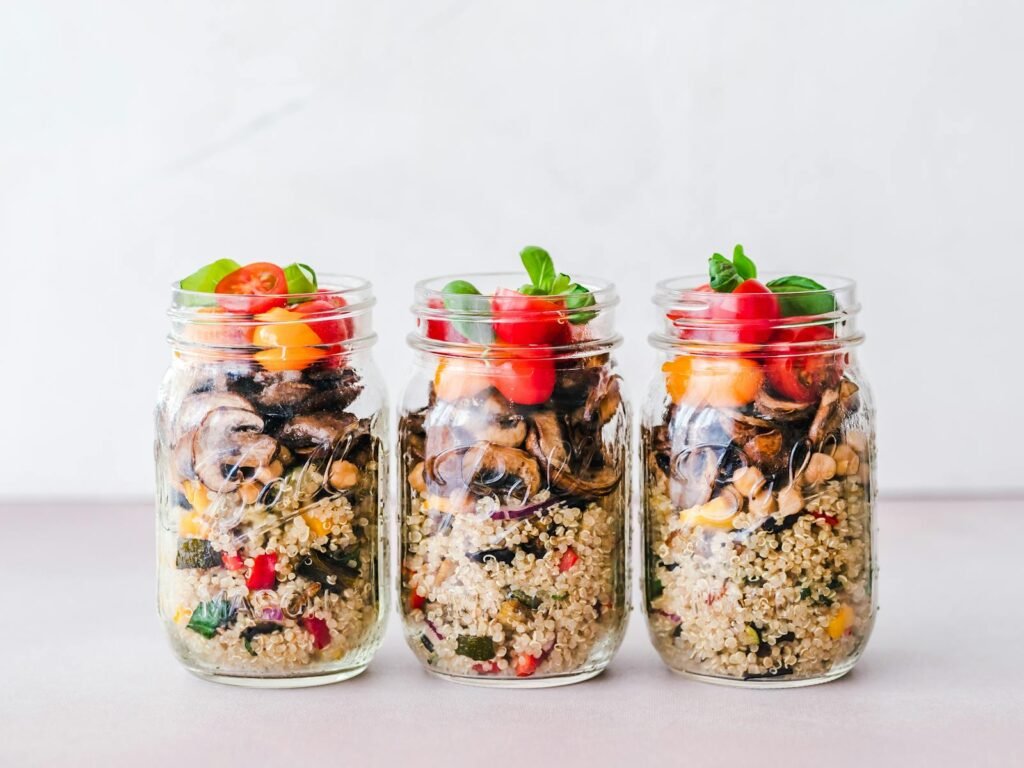Ovulation discomfort, also known as mittelschmerz, is a common experience for many women. You might feel a twinge or ache in your lower belly around the middle of your menstrual cycle. This pain happens when your ovary releases an egg. About 48% of women report feeling abdominal pain or discomfort during ovulation.
The pain can range from mild to sharp and may last a few minutes to a few days. You might also notice changes in your body, like different cervical mucus. These signs can help you track your fertility if you’re trying to get pregnant or avoid pregnancy.
Don’t worry if you feel this pain. It’s usually normal and not a cause for concern. But if the pain is severe or lasts a long time, you should talk to your doctor. They can check if there’s another reason for your discomfort.
Key Takeaways
- Ovulation discomfort is common and usually not a cause for worry
- You may feel pain in your lower belly when your ovary releases an egg
- Talk to your doctor if the pain is severe or lasts a long time
Understanding Ovulation
Ovulation is a key part of the female reproductive cycle. It involves the release of an egg from the ovary. This process affects your body in many ways.
Biological Process of Ovulation
Your ovaries hold thousands of follicles, each containing an immature egg. Every month, several follicles start to grow. Usually, only one becomes fully mature and releases an egg. This egg travels through the fallopian tube.
The egg can live for about 24 hours. If sperm is present, it may be fertilized. If not, the egg breaks down and leaves your body during your next period.
Your body temperature rises slightly after ovulation. This change can help you track your fertile days if you’re trying to get pregnant.
Hormonal Changes and Symptoms
Hormonal shifts happen during ovulation. These changes can cause various symptoms. You might notice:
- Mild pain on one side of your lower belly
- Changes in cervical mucus
- Breast tenderness
- Increased sex drive
Some women feel more tired around ovulation. This ovulation tiredness can range from mild to severe. In rare cases, it might even cause extreme fatigue.
You may also experience mood changes. Some women feel more energetic or upbeat. Others might feel irritable or emotional. These feelings are normal and linked to hormone fluctuations.
Ovulation and Discomfort
Ovulation can cause physical discomfort for some women. This experience varies from person to person and can include different sensations and symptoms.
Physical Sensations During Ovulation
You might feel various sensations during ovulation. Some women experience mild pain or discomfort in their lower abdomen. This feeling is often on one side, matching the ovary releasing an egg that month.
The pain can range from a dull ache to a sharp twinge. You may also notice:
- Bloating
- Breast tenderness
- Increased vaginal discharge
Some women feel nauseous while ovulating. This can be due to hormonal changes or sensitivity to the physical process.
Not everyone feels these symptoms. If you do, they usually last only a day or two.
Causes of Ovulation Discomfort
The main cause of ovulation discomfort is the release of the egg from the ovary. As the egg breaks through the ovary wall, it can irritate nearby nerves and tissues.
Other factors that can contribute to discomfort include:
- Follicle growth: The sac containing the egg swells before release.
- Fluid release: A small amount of fluid and blood is released with the egg.
- Hormonal changes: Shifts in estrogen and progesterone levels can affect how you feel.
If you have severe pain during ovulation, it’s best to talk to your doctor. They can rule out other conditions that might cause similar symptoms.
Management of Ovulation Symptoms
Dealing with ovulation discomfort can be challenging, but there are several ways to ease your symptoms. You can make lifestyle changes, try medical treatments, or use home remedies to feel better.
Lifestyle Adjustments
You can make simple changes to your daily routine to help manage ovulation pain. Regular exercise can boost your mood and reduce discomfort. Try gentle activities like yoga or walking for 30 minutes a day.
A healthy diet can also make a difference. Eat foods rich in omega-3 fatty acids, like salmon or walnuts, to help reduce inflammation. Avoid caffeine and alcohol, as they may worsen your symptoms.
Getting enough sleep is key. Aim for 7-9 hours each night. A consistent sleep schedule can help regulate your hormones and ease discomfort.
Stress reduction techniques can be helpful too. Try deep breathing exercises or meditation for a few minutes each day. These practices can help you relax and cope with pain better.
Medical Interventions
If lifestyle changes aren’t enough, medical treatments can offer relief. Birth control pills are a common option. They work by preventing ovulation, which can reduce or eliminate pain.
Over-the-counter pain relievers like ibuprofen or naproxen can help. Take them at the first sign of pain for best results. Always follow the dosage instructions on the label.
For severe cases, your doctor might prescribe stronger pain medications. They may also suggest hormonal treatments to regulate your menstrual cycle.
Some women experience painful ovulation on clomid, a medication used for fertility treatment. If this happens to you, talk to your doctor about adjusting your dose or trying alternative treatments.
Home Remedies
Simple home remedies can provide quick relief from ovulation discomfort. Applying a heating pad or hot water bottle to your lower abdomen can ease pain and relax tense muscles. Use it for 15-20 minutes at a time.
Taking a warm bath can have a similar effect. Add some Epsom salts to the water for extra relaxation. Soak for about 20 minutes to feel the benefits.
Herbal teas like chamomile or peppermint may help reduce pain and bloating. Drink a cup or two throughout the day.
Gentle massage can also be soothing. Use circular motions on your lower abdomen to improve blood flow and reduce pain. You can use a few drops of lavender essential oil for added relaxation.
Staying hydrated is important too. Drink plenty of water to help flush out toxins and reduce bloating. Aim for 8 glasses a day.
Impact of Medical Conditions
Medical conditions can affect ovulation discomfort in various ways. Some health issues may increase pain, while others might change ovulation patterns or intensity.
Reproductive Health Issues
Endometriosis can make ovulation more painful. This condition causes tissue similar to the uterine lining to grow outside the uterus. During ovulation, this tissue can swell and cause extra discomfort.
Ovarian cysts may also increase pain. These fluid-filled sacs on the ovaries can rupture during ovulation, leading to sharp pain.
Pelvic inflammatory disease (PID) can cause ongoing pelvic pain. This infection can make ovulation more uncomfortable than usual.
Some women report ovulation pain after a hysterectomy. This can happen if the ovaries are left in place. The sensation might feel different from before surgery.
Systemic Health and Ovulation
Autoimmune diseases can affect ovulation. Conditions like lupus or rheumatoid arthritis may cause inflammation that increases discomfort during this time.
Thyroid disorders can change your menstrual cycle and ovulation patterns. This might make tracking ovulation harder and affect when you feel pain.
Diabetes can impact ovulation by affecting hormone levels. This may lead to irregular cycles or changes in ovulation discomfort.
Stress and anxiety can also play a role. High stress levels might make ovulation pain feel worse or change your cycle timing.
Pharmacological Effects on Ovulation
Medications and fertility treatments can impact ovulation in various ways. Some drugs may cause discomfort during ovulation, while others are used to induce or regulate ovulation. Let’s explore how these pharmaceuticals affect the ovulation process and any associated pain.
Medication-Induced Ovulation Pain
Some medications can make ovulation more noticeable or painful. Clomid, a common fertility drug, may cause painful ovulation in some women. This pain is often due to the drug stimulating multiple follicles to develop, leading to increased pressure in the ovaries.
Other medications that might affect ovulation pain include:
- Hormonal birth control (when stopped)
- Certain antidepressants
- Some anti-inflammatory drugs
If you experience increased pain during ovulation while taking medication, talk to your doctor. They can help determine if the medication is the cause and suggest alternatives if needed.
Fertility Treatments and Discomfort
Fertility treatments often involve drugs to stimulate ovulation. These can sometimes lead to discomfort or pain. Ovulation induction medications like gonadotropins may cause:
- Bloating
- Abdominal pain
- Mood swings
- Breast tenderness
Your doctor will monitor you closely during treatment to minimize side effects. They may adjust your dosage or switch medications if you experience severe discomfort.
Long-Term Aspects of Ovulation
Tracking your ovulation over time can help you understand your body better and plan for the future. Learning to predict your fertile days can be useful whether you’re trying to get pregnant or avoid pregnancy.
Tracking Menstrual Health Over Time
Keeping a record of your menstrual cycles can give you valuable insights into your health. You can use a calendar, app, or journal to note the start and end dates of your periods. Pay attention to any changes in flow, pain levels, or cycle length.
Over time, you might notice patterns in your symptoms. Some women experience mild cramps or bloating during ovulation. Others may have no symptoms at all.
Regular tracking can help you spot any unusual changes. If you notice anything concerning, talk to your doctor. They can help figure out if there’s an underlying issue.
Predicting Ovulation and Fertility Planning
Understanding your ovulation patterns can be helpful for family planning. Most women ovulate about 14 days before their next period starts. But this can vary from person to person.
There are several ways to predict ovulation:
- Ovulation predictor kits
- Basal body temperature charting
- Cervical mucus changes
By tracking these signs over several months, you can get a good idea of when you’re most likely to ovulate. This knowledge can be useful whether you’re trying to conceive or avoid pregnancy.
Remember, stress and lifestyle changes can affect your cycle. So it’s a good idea to keep tracking even after you’ve found your pattern.
Psychological Aspects of Ovulation
Ovulation can affect your mood and emotions. The hormonal changes during this time may influence how you feel and behave. Let’s look at the emotional effects and ways to cope with stress.
Emotional Effects of Hormonal Fluctuations
During ovulation, your body goes through hormone changes. These shifts can impact your mood. You might feel:
- More energetic and upbeat
- Increased sex drive
- Better self-esteem
- More social and outgoing
Some women report feeling happier and more confident. This may be due to a rise in estrogen levels. Estrogen can boost serotonin production, which affects mood.
But not everyone feels positive effects. You might also experience:
- Anxiety or restlessness
- Mood swings
- Irritability
Coping with Ovulation-Related Stress
Ovulation can sometimes bring stress. Here are ways to manage:
- Track your cycle: Knowing when to expect ovulation can help you prepare.
- Practice self-care: Get enough sleep, eat well, and exercise regularly.
- Try relaxation techniques: Deep breathing, meditation, or yoga can help calm your mind.
Talk to someone: Share your feelings with a friend, partner, or therapist. - Consider counseling: If ovulation consistently causes distress, speaking with a mental health professional may help.
When to Seek Medical Advice
Ovulation discomfort can be normal, but sometimes it may signal a problem. Knowing when to get help is important for your health and well-being.
Indicators of Unusual Ovulation Patterns
Pay attention to changes in your usual ovulation symptoms. If you feel pain that’s much worse than normal or lasts longer than a few days, it’s time to see a doctor. Severe cramps during ovulation might mean there’s an issue that needs checking.
Watch for these signs:
- Pain that stops you from doing daily activities
- Fever or chills with ovulation pain
- Bleeding between periods
- Nausea or vomiting during ovulation
If you have a history of ovarian cysts or endometriosis, be extra alert to changes in your ovulation pain. These conditions can make ovulation more uncomfortable.
Professional Assessments and Interventions
When you see your doctor, they’ll ask about your symptoms and may do some tests. They might use methods to detect ovulation and check if it’s happening normally. This could include blood tests or ultrasounds.
Your doctor may suggest:
- Pain relief options
- Hormonal treatments to regulate ovulation
- Further tests if they suspect a condition like endometriosis
If you’ve had a hysterectomy but still feel ovulation-like pain, tell your doctor. This isn’t typical and needs to be looked into. They’ll want to make sure it’s not a sign of another issue.
Miscellaneous Considerations
Your diet, nutrition, and physical activity can affect ovulation discomfort. These factors may change how your body responds during this time of your cycle.
Diet and Nutrition’s Role
What you eat may impact how you feel during ovulation. Some foods might help ease discomfort:
- Omega-3 fatty acids (found in fish, nuts, and seeds)
- Fruits and vegetables high in antioxidants
- Whole grains and lean proteins
On the other hand, certain foods could make symptoms worse:
- Caffeine
- Alcohol
- Processed foods high in sugar or salt
Staying hydrated is key. Drink plenty of water throughout the day. This can help reduce bloating and cramps.
Consider taking supplements like magnesium or vitamin B6. These may help with pain and mood changes. But talk to your doctor before starting any new supplements.
Physical Activity Influence
Exercise can affect ovulation discomfort in different ways. Regular physical activity may:
- Reduce pain and cramping
- Improve mood and energy levels
- Help regulate hormones
Light to moderate exercise is often best during ovulation. Try activities like:
- Walking
- Swimming
- Yoga or stretching
Be careful not to overdo it. Too much intense exercise can sometimes make discomfort worse. Listen to your body and adjust your workouts as needed.
If you’re trying to get pregnant, talk to your doctor about the best exercise plan for you. Some women find that gentle exercise helps them feel better during this time.
Frequently Asked Questions
Ovulation pain can vary in intensity and location. Many women have questions about how it relates to fertility, health conditions, and pregnancy. Let’s explore some common concerns.
What is the relationship between ovulation pain and the chances of conception?
Ovulation pain can be a sign that you’re fertile. It often happens when an egg is released from your ovary. This pain might mean you’re at a good time to try for a baby.
If you’re trying to get pregnant, paying attention to this pain could help. It might give you a clue about when you’re most likely to conceive.
How does endometriosis affect the experience of ovulation pain?
Endometriosis can make ovulation pain worse. You might feel more intense cramping or discomfort. This is because endometriosis causes tissue to grow where it shouldn’t.
The extra tissue can irritate your ovaries and surrounding areas. This can lead to more pain when you ovulate. If you have very bad pain, it’s a good idea to talk to your doctor.
Where is ovulation pain typically located in the body?
Ovulation pain usually happens on one side of your lower belly. You might feel it on the right or left side, depending on which ovary releases an egg.
Sometimes, you can feel the pain in your lower back too. It’s often described as a mild ache or sharp twinge. The location can help you know it’s ovulation and not something else.
What could be the cause of severe pain during ovulation?
Severe pain during ovulation isn’t normal. It could be a sign of a health issue. Conditions like endometriosis or ovarian cysts can cause bad pain.
If your pain is very strong or lasts a long time, you should see a doctor. They can check if there’s a problem and help you feel better.
How much time elapses after experiencing ovulation pain before the egg is actually released?
Ovulation pain usually happens right when the egg is released. But sometimes, you might feel it just before. The pain can last from a few minutes to a few hours.
After you feel the pain, the egg is usually released within a day. This means you’re at your most fertile right after you feel the pain.
Can the presence of cramping during ovulation be an indicator of pregnancy?
Cramping during ovulation doesn’t mean you’re pregnant. It’s just a sign that your body is releasing an egg. Pregnancy can’t happen until after the egg is fertilized.
If you’re trying to get pregnant, ovulation cramping can help you know when to try. But it’s not a sign of pregnancy itself. You’ll need to wait a bit longer to know if you’re pregnant.





